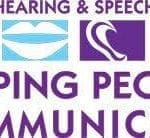May 31, 2019 / Blog / Tracy Bridges
The Problem With Do-It-Yourself Online Wills
These documents could save money, but can lay estate planning traps

As a professional trustee and executor, I have seen hundreds of estate-planning documents, including some from do-it-yourself online services. I appreciate that using a DIY site to draft a will can save money and time. But I’m also concerned that sometimes doing it this way could lead to expensive and unpleasant estate planning mistakes.
I recently saw one DIY estate-planning service that had typos on its site and its estate-planning “packages” had the same document labeled with three different names. Worse, the packages I looked at were missing a key estate planning document which very few users would know to ask about.
This service, like many other DIY estate-planning sites, has attorneys on staff, but access to specific help for your personal documents is rarely available. If personal advice is offered, it then appears to cost a great deal more to receive.
But what if you don’t know which questions to ask?
Online DIY Wills Vs. Hiring a Professional
For some people with complicated personal and financial lives, today’s complexities may not be fully addressed with a do-it-yourself service for wills and trusts. While many of us would prefer to fill in the blanks in silence than have to talk to anyone about our doubts or concerns, sometimes it helps — a lot — to get professional advice.
If you prepare your taxes yourself and they end up incorrect, you and the Internal Revenue Service may end up working things out. If you decide to do your estate planning by yourself,” however, youmay never know the results of your work, but your loved ones will.
There are lots of DIY options for completing your own estate plan, and they have been available almost as long as we have had the internet. (Longer, if you count all the software packages you could buy off the shelf.) With the ease and availability of these programs, and their low price, you might think more of us would have an up-to-date estate plan.
Yet according to the AARP article, Haven’t Done a Will Yet?, “only 4 in 10 American adults have a will or living trust.”
What Good Estate Planning Is All About
Our power to express our preferences is what good estate planning (or life planning), is all about. In my work as a trustee and executor, I’ve learned that the documents which provide me with detailed instructions are critical to avoid court involvement, to reduce administrative confusion and to know when our job is done.
The four basic estate planning documents: a will, a trust, power of attorney for financial matters and an advance health care directive. If you plan to use any or all of them through a DIY site, expect to be offered a fill-in-the-blank approach. Keep in mind that each state has its own probate code (the body of law governing estate planning and implementation). The software package you use may have different names for the same documents I have listed above.
Some of the DIY sites I visited have all of these documents for you, but only if you purchase their higher-end packages. Some offer limited attorney consultation; on one site, it was really a drop-down of questions with pre-written responses, not an actual conversation with an attorney.
Pros and Cons of DIY Estate Planning
The advantage of using a DIY service is that you will have a plan, as quickly and cheaply as possible, and that may be better than having no plan at all. This is especially true regarding getting a will, power of attorney and advance health care directive. Those handle most emergencies for people who don’t own real estate or much else.
The range of DIY services also has a range of prices — like $69 for just a will, to several hundreds of dollars for what may be described as a “complete plan.” Some sites have more information than others about their options.
Most presume that you already know what you want. But the reality is that many people have no idea what they want or need. Once you get into the complexities of family dynamics and perhaps trust language specific to your state and situation, DIY estate planning can cause more challenges than working with a team of professionals.
My Caution About DIY Online Wills
Here is my caution, based on my experience: You don’t know what you don’t know. You know some things about how you want to dispose of your assets after you die. What you may not know is all the case law and legislation that have evolved into your state’s probate code.
If you do decide to look for an attorney who specializes in estate planning, I recommend interviewing two or more. This way, you will get a feel for how each handles client relationships, payment, follow-up and his or her own succession. You may already have other trusted professionals (a cpa, a financial planner) who can refer you to estate planners in your area.
However you choose to get your plan completed, DIY or with the help of an experienced attorney, please get your estate plan done, and soon. You never know what surprises life will bring that will invoke your estate plan.

Next Avenue Editors Also Recommend:
- Probate, Wills, Executors: Your Estate Planning Questions Answered
- Estate Planning Advice for Women
- 9 Steps to Getting Your Estate Plan in Order
Next Avenue brings you stories that are inspiring and change lives. We know that because we hear it from our readers every single day. One reader says,
“Every time I read a post, I feel like I’m able to take a single, clear lesson away from it, which is why I think it’s so great.”
Your generous donation will help us continue to bring you the information you care about. What story will you help make possible?


